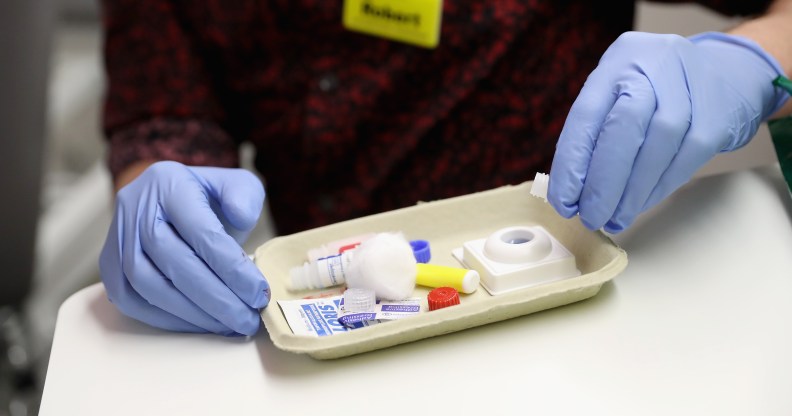Homophobia in 1980s linked to HIV testing reluctance, study finds

London is world-leading when it comes to HIV 90-90-90 targets. (Chris Jackson/Getty)
Homophobia in the 1980s may be linked to a reluctance in older gay men to get tested for HIV, a study has found.
The study, carried out by Glasgow Caledonian University and the University of Glasgow, analysed data from 2,436 men living in Scotland, Northern Ireland, the Republic of Ireland and Wales, to examine testing behaviour among different age groups of men.
Researchers found that homophobia dating back to the 1980s and the Section 28 clause – an amendment to the Local Government Act 1988 banning local authorities and schools from “promoting” homosexuality – could still be affecting the health of older men.
The study also found that gay men aged 16 to 25 were more likely to get tested for HIV if they had a university degree.
Dr Jamie Frankis, a reader in Sexual Health Psychology at Glasgow Caledonian University, said: “Homophobic stigma is having a negative impact on the health of our older men but not younger men who’ve lived through periods with less homophobia and greater equality.
“Our research showed that stigma was only associated with less recent HIV testing for older men. However, not identifying as gay was related to less HIV testing for men aged 26 and above.
“For older men, it looks like the barriers seem to come up in terms of your own management of sexual identity within the wider culture that you are living in.
“That would speak to the homophobia that was highly present in the ‘80s at the onset of HIV when gay men, who now are over 45, would have been young and they would have experienced massive homophobia, anti-gay and anti-HIV stigma.
“It is possible that older men are still troubled by the mass homophobia of the ‘80s and that is affecting their own testing behaviour.
“They could still be harbouring fears around HIV as a heavily stigmatised infection rather than the HIV of today, which is a highly manageable condition.”

